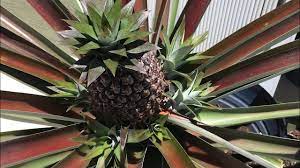
Pineapple-based agroforestry, traditionally practiced by ethnic “Hmar” tribe in southern Assam, can be a sustainable alternative to jhum cultivation for the North East India.
Daily Current Affairs Quiz 2021
This traditional practice can provide twin solutions for climate change and biodiversity loss, according to a new study.
Jhum cultivation, also called swidden agriculture, the dominant agricultural practice in the region, has become unsustainable primarily due to the reduced fallow cycle resulting in depletion in soil fertility, severe soil erosion, and low agronomic productivity.
Hence, North East India and many south Asian countries are shifting to agroforestry and high-value cropping systems from traditional jhum practices over the past decades, which are considered sustainable and profitable alternatives.
Pineapple agroforestry systems (PAFS) are dominant land use in the Indian Eastern Himalayas and other parts of Asia and are mostly grown in association with multipurpose trees.





